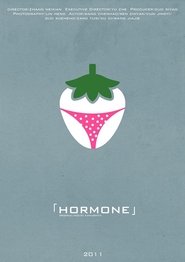detail profile ai weiwei
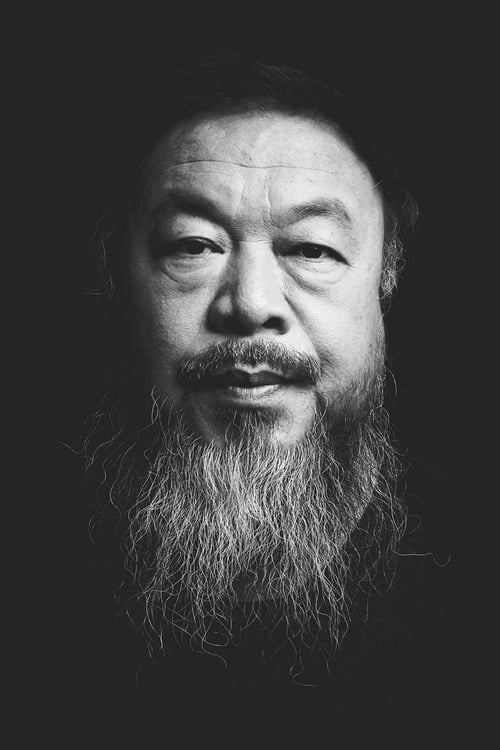
Ai Weiwei
Ài Wèiwèi
atau dikenal sebagai
Riwayat Hidup
Ai Weiwei is a Chinese contemporary artist and activist.
Ai grew up in the far north-west of China, where he lived under harsh conditions due to his father's exile.
As an activist, he has been openly critical of the Chinese Government's stance on democracy and human rights.
He investigated government corruption and cover-ups, in particular the Sichuan schools corruption scandal following the collapse of schools in the 2008 Sichuan earthquake.
In 2011, Ai Weiwei was arrested at Beijing Capital International Airport on 3 April, for allegedly economic crimes.
He was detained for 81 days without charge.
Ai Weiwei emerged as a vital instigator in Chinese cultural development, an architect of Chinese modernism, and one of the nation's most vocal political commentators.
Ai Weiwei encapsulates political conviction and his personal poetry in his many sculptures, photographs and public works.
In doing this, he makes use of Chinese art forms to display the Chinese political and social issues.
After being allowed to leave China in 2015, he has lived in Berlin, Germany, and, since 2019, in Cambridge, UK, with his family, working and traveling internationally.
Info Pribadi
Peran Yang Di Mainkan Ai Weiwei
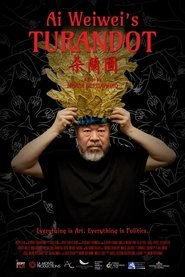 Theres a first time for everything...
Theres a first time for everything...Ai Weiwei's Turandot 2025
There's a first time for everything, and thus Chinese multi-disciplinary artist Ai Weiwei set out to make his debut as an opera director, with an entire film crew following the meticulous preparations of this endeavour. Ai Weiwei's Turandot provides not only a rich insight into the creation process, but also offers a glimpse into the heart and brain of China's most famous artistic dissident.
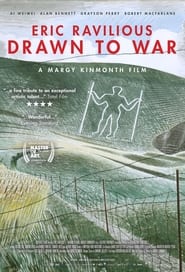 One of Britains greatest landscape artists...
One of Britains greatest landscape artists...Eric Ravilious: Drawn to War 2022
One of Britain’s greatest landscape artists, Eric Ravilious, is killed in a plane crash while on commission as Official War Artist in Iceland in 1942. His life is as compelling and enigmatic as his art, set against the dramatic wartime locations that inspire him. This film brings to life this unique and still grossly undervalued British artist caught in the crossfire of war 80 years ago, whose legacy largely sank without trace, until now…
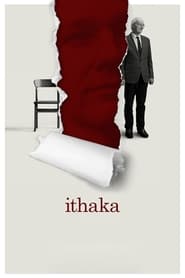 The campaign to free Julian Assange...
The campaign to free Julian Assange...Ithaka 2022
The campaign to free Julian Assange takes on intimate dimensions in this documentary portrait of an elderly man’s fight to save his son. Arguably the world’s most famous political prisoner, WikiLeaks founder Julian Assange is a figure pretty much everybody has an opinion about; perhaps more importantly, he serves as the emblem of an international arm wrestle over freedom of journalism, government corruption and unpunished war crimes. For his family members who face the prospect of losing him forever to the abyss of the US justice system, however, this David-and-Goliath struggle is personal – and, with his health declining in a British maximum-security prison and American government prosecutors pulling out all the stops to extradite him, the clock is ticking.
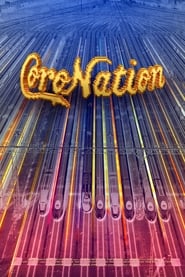 As the first city hit in...
As the first city hit in...CoroNation 2020
As the first city hit in the global pandemic, Wuhan, with a population of 11 million, was placed under an unprecedented lockdown. The film showcases the incredible speed and power of China’s state machinery in its fight against the virus. On the other side of the scale is the crushing bureaucracy of that same machine.
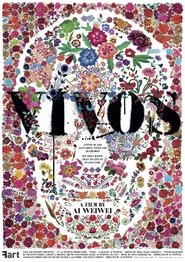 Since an attack on students of...
Since an attack on students of...Vivos 2020
Since an attack on students of the Ayotzinapa Rural Teachers' College in 2014 resulted in six deaths and in the forced disappearance of 43, the students’ families have been living in limbo with their unanswered questions, their struggle embodying the psychological and emotional toll of endemic violence upon Mexican society.
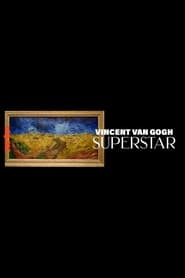 Documentary about famous painter Vincent van...
Documentary about famous painter Vincent van...Vincent van Gogh Superstar 2019
Documentary about famous painter Vincent van Gogh.
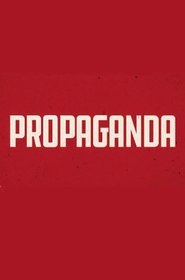 From ancient cave paintings to Twitter...
From ancient cave paintings to Twitter...Propaganda: The Art of Selling Lies 2019
From ancient cave paintings to Twitter feeds and deep fakes, propaganda's rapid progression hasn't compromised its potency. Tracing its effective use by religious figures, politicians and marketers, director Larry Weinstein crafts a persuasive study of the mechanics behind propaganda. This fascinating investigation confronts us with timely questions: If we grow up surrounded by propaganda, how do we know what is true? What risks are inherited by a society tricked into their perceptions? Freedom of speech is critical to a democracy's survival, yet demagogues have consistently exploited that freedom to coerce willing supporters. Contemporary artists, including Kent Monkman, Shepard Fairey and Ai Weiwei, analyze their politically motivated work, creatively co-opting the conventions of disinformation that have permeated their respective cultures. As our platforms for spreading ideas continue to expand in a digital age, dangerous lies have never been better disguised.
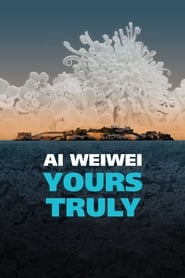 Ai Weiwei famous for his largescale...
Ai Weiwei famous for his largescale...Ai Weiwei: Yours Truly 2019
Ai Weiwei, famous for his large-scale installation work and his dogged social justice advocacy, created a career-defining work in 2015 with @Large, mounted at Alcatraz, the emblematic site associated with egregious incarceration conditions and radical Native American protest. At the core of @Large were portraits of prisoners of conscience coupled with the opportunity to write letters of solidarity to the imprisoned. In her impassioned and powerful film, exhibition curator Cheryl Haines visits several current and former prisoners, including American whistleblower Chelsea Manning, and learns how these letters were vital to their survival. “The misconception of totalitarianism is that freedom can be imprisoned. This is not the case. When you constrain freedom, freedom will take flight and land on a windowsill.” — Ai Weiwei
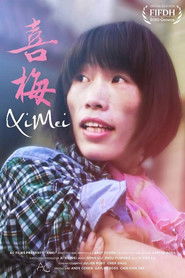 Twenty years after Chinas scandalous Black...
Twenty years after Chinas scandalous Black...Ximei 2019
Twenty years after China’s scandalous “Black Blood Economy,” when a million Chinese citizens were infected with HIV and countless died from AIDS, thousands of rural peasants still suffer the consequences, their plight hidden from the eyes of the world and strongly censored by Chinese authorities.
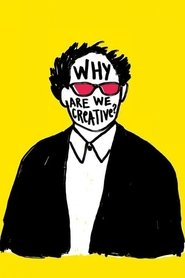 A 30 years odyssey the worlds most...
A 30 years odyssey the worlds most...Why Are We Creative? 2018
A 30 years odyssey: the world's most intriguing artists and thinkers from the fields of visual art, music, filmmaking, acting, literature, philosophy, politics, business and science, are asked the same question: "Why are you creative?"
 More than 65 million people around the...
More than 65 million people around the...Human Flow 2017
More than 65 million people around the world have been forced from their homes to escape famine, climate change and war, the greatest displacement since World War II. Filmmaker Ai Weiwei examines the staggering scale of the refugee crisis and its profoundly personal human impact. Over the course of one year in 23 countries, Weiwei follows a chain of urgent human stories that stretch across the globe, including Afghanistan, France, Greece, Germany and Iraq.
 With Taiwan remaining in the grip...
With Taiwan remaining in the grip...Flowers of Taipei: Taiwan New Cinema 2014
With Taiwan remaining in the grip of martial law in 1982, a group of filmmakers from that country set out to establish a cultural identity through cinema and to share it with the world. This engaging documentary looks at the movement's legacy.
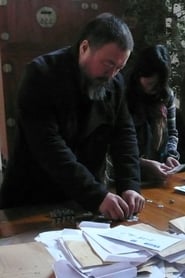 Ai Weiweis Appeal 1522091050 opens with Ai...
Ai Weiweis Appeal 1522091050 opens with Ai...Ai Weiwei's Appeal ¥15,220,910.50 2014
Ai Weiwei’s Appeal ¥15,220,910.50 opens with Ai Weiwei’s mother at the Venice Biennial in the summer of 2013 examining Ai’s large S.A.C.R.E.D. installation portraying his 81 day imprisonment. The documentary goes onto chronologically reconstruct the events that occurred from the time he was arrested at the Beijing airport in April 2011 to his final court appeal in September 2012. The film portrays the day-to-day activity surrounding Ai Weiwei, his family and his associates ranging from consistent visits by the authorities, interviews with reporters, support and donations from fans, and court dates. The Film premiered at the International Film Festival Rotterdam on January 23, 2014.
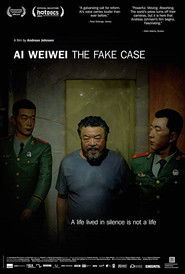 After 81 days of solitary detention world...
After 81 days of solitary detention world...Ai Weiwei: The Fake Case 2013
After 81 days of solitary detention world famous Chinese artist Ai Weiwei is put under house arrest. He suffers from sleeping disorder and memory loss, 18 cameras are monitoring his studio and home, police agents follow his every move, and heavy restrictions from the Kafkaesque Chinese authorities weigh him down. Journalists, the art world and his family all want a piece of him and on top of that he is met with a gigantic lawsuit from the Chinese government, soon to be named 'The Fake Case'. Ai Weiwei is shaken, but during the year on probation he steadily finds new ways to provoke and challenge the mighty powers of the Chinese authorities in his fight for human rights. Ai Weiwei strongly believes that China is ready for change. And he will do everything to make it happen.
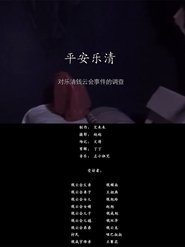 Pingan yueqing investigates the 2010 death of...
Pingan yueqing investigates the 2010 death of...Ping'an Yueqing 2013
Ping’an yueqing investigates the 2010 death of Qian Yunhui, a village leader from Yueqing in the eastern province of Zhejiang, who died under suspicious circumstances that authorities deemed a road accident. The film recounts Qian’s death in which he was crushed by the wheels of a truck.
 An account of the many tribulations...
An account of the many tribulations...Ai Weiwei: Never Sorry 2012
An account of the many tribulations that Chinese artist Ai Weiwei, known for his subversive art and political activism, endured between 2008 and 2011, from his rise to world fame via the Internet to his highly publicized arrest due to his frequent and daring confrontations with the Chinese authorities.
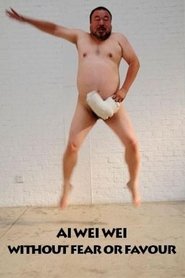 Arts documentary first broadcast before Ai...
Arts documentary first broadcast before Ai...Ai Weiwei: Without Fear or Favour 2010
Arts documentary, first broadcast before Ai Weiwei's arrest by the Chinese authorities in April 2011, and his subsequent release after being detained for 11 weeks. Architect, photographer, curator and blogger, Ai Weiwei is China's most famous and politically outspoken contemporary artist. Alan Yentob explores the story of Ai Weiwei's life and art, and reveals how this most courageous and determined of artists continues to fight for artistic freedom of expression while living under the restrictive shadows of authoritarian rule.
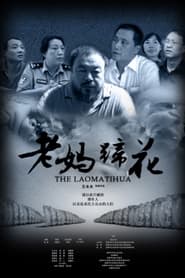 Disturbing the Peace is a documentary...
Disturbing the Peace is a documentary...Disturbing the Peace 2009
"Disturbing the Peace" is a documentary of an incident during Tan Zuoren's trial on August 12, 2009. Tan Zuoren was charged with inciting subversion of state power. Chengdu police detained witnessed during the trial of the civil rights advocate, which is an obstruction of justice and violence. Tan Zuoren was charged as a result of his research and questioning regarding the 5.12 Wenchuan students' casualties and the corruption resulting poor building construction. Tan Zuoren was sentenced five years to prison.
